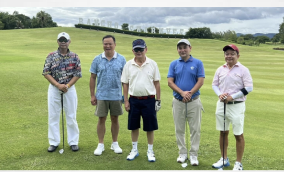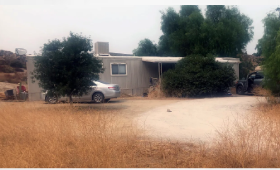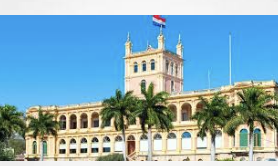Decided over a game of golf?
This report in Asean Now says that denials were issued about any deals done on the golf cource
Pheu Thai Party and coalition partner Bhumjaithai Party have refuted claims of any secret agreements after former Prime Minister Thaksin Shinawatra and Bhumjaithai leader Anutin Charnvirakul were seen playing golf together at a resort in Nakhon Ratchasima over the weekend.
Anutin, who holds the positions of Deputy Prime Minister and Interior Minister, clarified that Thaksin and his family stayed at a different hotel. He asserted that no political discussions took place with Thaksin, who is widely considered to be Pheu Thai’s unofficial leader.
Anutin also dismissed allegations that he sought Thaksin’s help to resolve the ongoing conflict between Pheu Thai and Bhumjaithai regarding the government’s plan to reclassify cannabis as a narcotic.
“It has nothing to do with Thaksin. The Narcotics Control Board (NCB) will make a decision on the matter.”
Observers have noted a growing dispute between Bhumjaithai, which has championed the decriminalisation of cannabis, and Pheu Thai, which aims to reverse this policy. A health committee responsible for controlling illegal drugs voted on July 5 to reclassify cannabis and hemp as narcotics, effective from January 1, 2025. This committee will present its findings to the NCB for review this month.
Thailand‘s Deputy Prime Minister and Commerce Minister Phumtham Wechayachai also denied any secret deals between Pheu Thai and Bhumjaithai.“They went to play golf, sang songs and had dinner together.”
However, sources indicated that the golf outing between Anutin and Thaksin at the Khao Yai resort was intended to address the cannabis dispute between the two parties.
These sources suggested that a potential resolution could involve the NCB returning the relisting proposal to the health committee for further review and the government advocating for a cannabis law with stricter controls on its use. In exchange, Bhumjaithai is anticipated to fully support Pheu Thai’s digital wallet scheme, according to the sources.
Read more
PBS THAILAND
The escalating battle over cannabis in Thailand’s Parliament means the herb is unlikely to be recriminalised or more tightly regulated anytime soon.
Prime Minister Srettha Thavisin reversed his tough stance on relisting ganja as a narcotic on July 23 after Bhumjaithai, a key coalition partner in his government, fought back fiercely against the plan.
Bhumjaithai leader Anutin Charnvirakul, who doubles as deputy prime minister and interior minister, warned of economic consequences if the government changed its marijuana policy.
“Who would want to invest in Thailand?” he asked.
Numerous investors, both domestic and foreign, have set up marijuana and related businesses in Thailand since Bhumjaithai successfully pushed for the legalisation of cannabis. Thailand’s rapidly expanding cannabis and hemp industry is now worth 36.52 billion baht, up from 31.75 billion baht last year, according to the Thai Chamber of Commerce’s Center for Economic and Business Forecasting.
Last weekend, Anutin played golf with Thaksin Shinawatra who, as patriarch of the coalition-leading Pheu Thai Party, is believed to wield huge influence over Srettha.
The prime minister has now decided to handle the explosion in the recreational use of marijuana not via prohibition but with legislation governing its availability.
Legal vacuum continues
Public Health Minister Somsak Thepsuthin said there were now four separate marijuana bills being considered, but the legislative process was progressing slowly. As such, Thailand should first put marijuana back on the narcotics list, he added.
“However, I have to respect the National Narcotics Control Board’s decision. Let’s see what the board decides,” he said.
On July 5, the National Narcotics Committee passed a resolution to relist marijuana as a narcotic, but the resolution will only take effect if it is endorsed by the board.
Medics have expressed frustration over the delay in controlling cannabis use.
Dr Smith Srisont, a member of the Medical Council and president of the Forensic Physician Association of Thailand, said recent developments showed politicking was obstructing the path to proper regulation.
“Going back and forth or emphasising that cannabis control should be done via the marijuana law means the legal vacuum will continue,” he said. “And the public will continue to bear the brunt.”
Anutin, despite his claims, had never really listened to what others said about marijuana’s adverse health impacts, Smith lamented.
“Research in both Thailand and other countries shows marijuana consumption causes many negative effects, but he [Anutin] keeps saying there is no solid evidence for this,” he said.
Read full analysis here
Politicking and profits block path to recriminalising ganja in Thailand


















